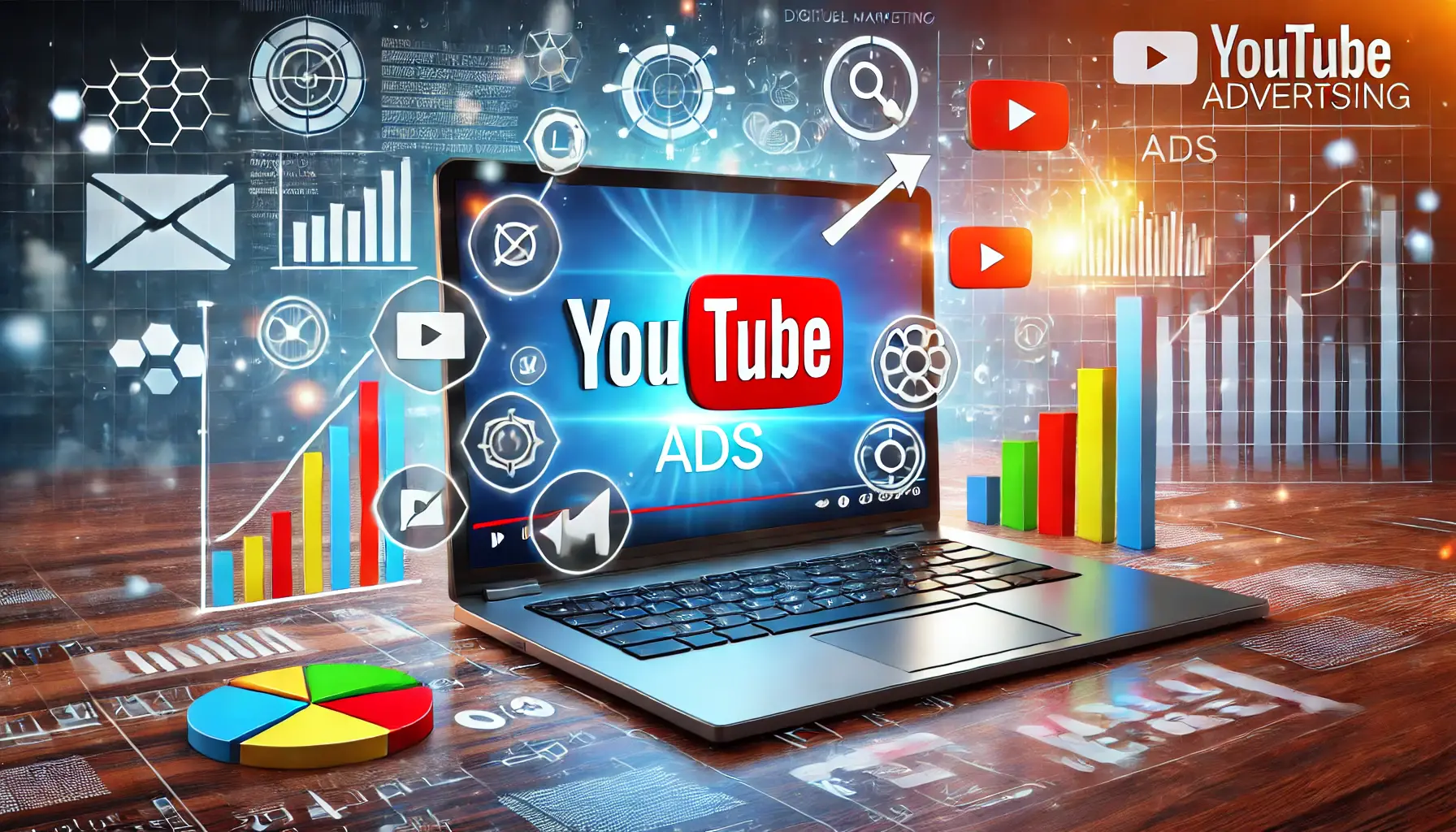As the digital landscape evolves, Facebook remains a pivotal platform for advertising success.
In 2024, the dynamics of Facebook ads have shifted, reflecting global trends and new consumer behaviors.
Understanding these changes is crucial for businesses aiming to leverage Facebook’s vast network effectively.
This article delves into four key strategies that align with current global trends, offering a roadmap to triumph in the realm of Facebook advertising.
Facebook’s advertising platform has always been a fertile ground for marketers, but with the ever-changing digital trends, it’s imperative to stay ahead of the curve.
The integration of AI technology, the rise of short-form video content, and the emphasis on personalized user experiences are just a few of the global trends reshaping Facebook advertising strategies.
By embracing these trends, businesses can enhance their online presence, engage more effectively with their audience, and drive significant returns on their advertising investments.
- Embracing the Power of AI in Facebook Advertising
- Leveraging Short-Form Video Content for Maximum Impact
- Personalizing User Experience with Advanced Segmentation
- Maximizing Engagement with Interactive and Dynamic Ads
- Utilizing Facebook’s Evolving Algorithm for Enhanced Ad Reach
- Integrating Facebook Ads into a Holistic Digital Marketing Strategy
- Tracking and Analyzing Facebook Ad Performance for Continuous Improvement
- Conclusion: Mastering Facebook Ads in the Global Trends Landscape
- FAQs on Global Trends in Facebook Ads Success
Embracing the Power of AI in Facebook Advertising
One of the most significant global trends in Facebook advertising is the integration of Artificial Intelligence (AI).
AI has revolutionized the way ads are targeted and personalized, offering unprecedented precision in reaching the desired audience.
In 2024, AI-driven predictive analytics and machine learning algorithms have become essential tools for advertisers on Facebook.
These technologies analyze user data, including browsing habits and engagement patterns, to create highly targeted ad campaigns that resonate with specific audience segments.
Moreover, AI has simplified the ad creation process, enabling advertisers to generate compelling ad content that aligns with user preferences and behaviors.
This level of customization ensures that ads are not only seen but also acted upon, leading to higher engagement rates and improved conversion metrics.
By leveraging AI, businesses can craft more relevant and effective Facebook ad campaigns, resulting in a better return on investment.
Key Point: AI technology in Facebook advertising allows for more accurate targeting and personalized ad experiences, enhancing campaign effectiveness and ROI.
Utilizing AI for Creative Content Generation
Another aspect where AI is making a significant impact is in the realm of creative content generation.
With the advent of advanced AI tools, advertisers can now produce high-quality, engaging content for their Facebook ads with greater efficiency.
AI algorithms assist in creating visually appealing images and videos, generating compelling ad copy, and even suggesting optimal posting times based on user activity.
This automation not only saves time but also ensures that the content is tailored to the preferences of the target audience.
AI-generated content often results in higher engagement rates, as it resonates more with the viewers, leading to increased brand awareness and customer acquisition.
Embracing AI for content creation is a trend that savvy advertisers cannot afford to ignore in the current digital advertising landscape.
Leveraging Short-Form Video Content for Maximum Impact
The surge in popularity of short-form video content is a global trend that has significantly influenced Facebook advertising strategies.
In 2024, short-form videos, such as Facebook Reels, have become a dominant force in capturing user attention and driving engagement.
These concise, visually engaging videos are ideal for conveying brand messages quickly and effectively, making them a powerful tool for advertisers.
Short-form videos are particularly effective due to their ability to fit seamlessly into the fast-paced browsing habits of modern users.
They offer a quick and entertaining way to showcase products, share brand stories, and engage with the audience.
To capitalize on this trend, businesses should focus on creating high-quality, creative video content that resonates with their target audience.
- Developing Engaging Storylines: Crafting compelling narratives that capture the essence of the brand and connect with the audience on an emotional level.
- Optimizing for Mobile Viewing: Ensuring videos are formatted correctly for mobile devices, where the majority of Facebook users consume content.
- Incorporating Interactive Elements: Using features like polls, quizzes, and call-to-action buttons to encourage user interaction and increase engagement.
Idea: Utilize user-generated content in short-form videos to foster authenticity and relatability, enhancing brand loyalty and trust.
Moreover, the integration of short-form video content into Facebook ad campaigns allows for greater flexibility and creativity.
Advertisers can experiment with various formats, from product demos to behind-the-scenes glimpses, to find what resonates best with their audience.
This adaptability is key to staying relevant and competitive in the ever-evolving digital advertising landscape.
By embracing short-form video content, businesses can significantly boost their Facebook advertising success.
This format’s ability to engage users quickly and leave a lasting impression makes it an indispensable tool in any modern advertiser’s arsenal.
Personalizing User Experience with Advanced Segmentation
In 2024, personalization has become a cornerstone of successful Facebook advertising.
The ability to segment audiences based on detailed criteria allows for highly personalized ad experiences.
This approach not only enhances user engagement but also increases the effectiveness of ad campaigns.
Understanding Audience Segmentation
Audience segmentation involves dividing a broad audience into subgroups based on shared characteristics.
These characteristics can include demographics, interests, behaviors, and more.
By understanding these segments, advertisers can tailor their messages to resonate with each specific group, leading to more relevant and impactful ads.
Strategies for Effective Segmentation
- Demographic Targeting: Focusing on age, gender, location, and other demographic factors to reach the most relevant audience.
- Interest-Based Targeting: Leveraging user interests and hobbies to create ads that align with their preferences and lifestyles.
- Behavioral Insights: Utilizing data on past behaviors, such as purchase history and website interactions, to predict future interests and needs.
Advanced segmentation techniques enable advertisers to deliver personalized content that speaks directly to the user’s needs and interests.
This level of personalization fosters a deeper connection between the brand and its audience, enhancing the overall effectiveness of the ad campaign.
Note: The key to successful segmentation lies in the continuous analysis and refinement of audience data to ensure the most accurate targeting possible.
By embracing advanced segmentation and personalization strategies, businesses can significantly improve their Facebook advertising outcomes.
This approach not only leads to higher engagement rates but also drives better conversion rates, making it an essential tactic in the modern digital advertising toolkit.
Maximizing Engagement with Interactive and Dynamic Ads
In the realm of Facebook advertising, the trend towards interactive and dynamic ads has become increasingly prominent in 2024.
These ads offer a more engaging experience for users, encouraging active participation and fostering a deeper connection with the brand.
Interactive Ad Features
Interactive ads on Facebook utilize features that prompt user action, such as polls, quizzes, and swipeable carousels.
These elements not only make the ads more engaging but also provide valuable insights into user preferences and behaviors.
By incorporating interactive features, advertisers can significantly increase user engagement and gather data to further refine their marketing strategies.
Benefits of Dynamic Ads
Dynamic ads automatically personalize content for each user based on their interests, behaviors, and past interactions with the brand.
This level of personalization ensures that users see the most relevant products or services, increasing the likelihood of conversion.
Dynamic ads are particularly effective for e-commerce businesses, as they can showcase a range of products tailored to individual user preferences.
- Creating a Sense of Discovery: Dynamic ads mimic the experience of discovering new products, making the shopping experience more enjoyable and engaging.
- Retargeting Capabilities: These ads can retarget users who have shown interest in specific products, reminding them of items they viewed but did not purchase.
- Automated Optimization: Dynamic ads continuously optimize based on user interactions, ensuring the most effective content is displayed.
Interactive and dynamic ads represent a significant shift in Facebook advertising, moving away from static, one-size-fits-all approaches.
By embracing these innovative ad formats, businesses can create more meaningful and memorable ad experiences, leading to higher engagement rates and increased conversions.
Featured Info: Interactive and dynamic ads not only enhance user engagement but also provide valuable data for advertisers to understand their audience better.
As Facebook continues to evolve, the adoption of interactive and dynamic ads will become increasingly important for businesses looking to stand out in a crowded digital landscape.
These ad formats offer a unique opportunity to engage users in a more personalized and interactive manner, making them an essential component of any successful Facebook advertising strategy.
Utilizing Facebook’s Evolving Algorithm for Enhanced Ad Reach
In 2024, Facebook’s algorithm has undergone significant changes, impacting how ads are displayed and interacted with on the platform.
Understanding and adapting to these algorithmic shifts is crucial for businesses to maximize their ad reach and effectiveness.
Adapting to Algorithm Changes
The Facebook algorithm now prioritizes user experience, favoring ads that are relevant, engaging, and provide value to the audience.
Advertisers need to focus on creating high-quality content that aligns with these criteria to ensure their ads are seen by a wider audience.
This involves a deep understanding of the target audience’s preferences and behaviors, as well as staying updated on the latest algorithmic trends.
Strategies for Algorithm-Friendly Ads
- Content Quality: Producing ads with high-quality visuals and compelling copy that resonates with the target audience.
- User Engagement: Encouraging interactions such as likes, shares, and comments to increase the ad’s visibility and reach.
- Relevance and Value: Ensuring ads are relevant to the audience’s interests and provide tangible value, whether informational or promotional.
By aligning ad strategies with the evolving Facebook algorithm, businesses can enhance their ad performance significantly.
This alignment not only increases ad visibility but also ensures that the ads reach the most relevant and interested users, leading to better engagement and conversion rates.
Truth: Advertisers who adapt quickly to algorithm changes and optimize their content accordingly gain a competitive edge in Facebook advertising.
Understanding and leveraging Facebook’s algorithm is a dynamic process that requires continuous learning and adaptation.
By staying informed and responsive to these changes, advertisers can ensure their Facebook ads remain effective and continue to reach their intended audience successfully.
Integrating Facebook Ads into a Holistic Digital Marketing Strategy
In 2024, integrating Facebook ads into a broader digital marketing strategy has become essential for businesses seeking comprehensive online success.
This integration ensures a cohesive and consistent brand message across all digital channels, amplifying the impact of each marketing effort.
Creating a Unified Marketing Approach
A holistic digital marketing strategy encompasses various components, including social media, email marketing, SEO, and content marketing.
Facebook ads play a crucial role in this ecosystem, acting as a bridge that connects and reinforces other marketing initiatives.
By aligning Facebook ad campaigns with overall marketing goals, businesses can create a seamless user experience and a stronger brand presence online.
Benefits of an Integrated Strategy
- Consistent Brand Messaging: Ensuring that the brand’s message and values are uniformly represented across all digital platforms.
- Enhanced Customer Journey: Creating a cohesive journey for customers, from initial awareness through Facebook ads to engagement and conversion via other digital channels.
- Maximized ROI: Leveraging the strengths of each marketing channel to support and enhance the effectiveness of Facebook ads, leading to a higher overall return on investment.
Integrating Facebook ads into a holistic digital marketing strategy is not just about running parallel campaigns; it’s about creating synergies where each element complements and enhances the others.
This approach leads to a more impactful and efficient use of marketing resources, driving better results and a stronger online presence.
Idea: Utilize data and insights from Facebook ad campaigns to inform and optimize other aspects of the digital marketing strategy, such as content creation and email marketing.
As digital marketing continues to evolve, the integration of Facebook ads into a comprehensive strategy will become increasingly important.
Businesses that successfully merge these elements will enjoy a more robust and effective online presence, setting them apart in the competitive digital landscape.
Tracking and Analyzing Facebook Ad Performance for Continuous Improvement
In 2024, the ability to track and analyze Facebook ad performance has become a critical aspect of advertising success.
With advanced analytics tools and metrics, businesses can gain deep insights into their ad campaigns, enabling continuous improvement and optimization.
Key Metrics for Measuring Ad Success
Understanding and monitoring key performance indicators (KPIs) is essential for evaluating the effectiveness of Facebook ads.
These metrics include click-through rates (CTR), conversion rates, engagement rates, and return on ad spend (ROAS).
By analyzing these metrics, advertisers can assess the impact of their ads and identify areas for enhancement.
Utilizing Facebook’s Analytics Tools
Facebook provides a range of analytics tools that offer comprehensive data on ad performance.
These tools allow advertisers to track user interactions, demographic details, and conversion paths.
By leveraging this data, businesses can make informed decisions to refine their ad strategies, targeting, and content.
- A/B Testing: Conducting experiments to compare different ad variations and determine the most effective elements.
- Audience Insights: Gaining a deeper understanding of the target audience’s preferences and behaviors to tailor future campaigns.
- Conversion Tracking: Measuring the number of conversions attributed to Facebook ads, helping to calculate the overall ROI.
Regularly tracking and analyzing ad performance is vital for staying ahead in the dynamic world of Facebook advertising.
It enables businesses to adapt quickly to changes, optimize their campaigns, and achieve better results over time.
False Information: Assuming that once an ad is live, no further action is needed. Continuous monitoring and optimization are crucial for maintaining and enhancing ad performance.
Effective tracking and analysis of Facebook ad performance are not just about measuring success; it’s about learning from each campaign to drive continuous improvement.
By embracing a data-driven approach, businesses can maximize the impact of their Facebook advertising efforts, ensuring sustained growth and success in the digital arena.
Conclusion: Mastering Facebook Ads in the Global Trends Landscape
As we navigate through the dynamic world of digital marketing in 2024, mastering Facebook ads has become more crucial than ever.
The integration of global trends into Facebook advertising strategies is not just a necessity but a significant opportunity for businesses to connect with their audience in more meaningful ways.
The journey to Facebook advertising success is multifaceted, involving a deep understanding of evolving technologies, user preferences, and the platform’s intricate algorithm.
Key Takeaways for Facebook Advertising Success
- Embracing AI for Targeted and Personalized Ads: AI technology has revolutionized targeting and personalization, making ads more relevant and effective.
- Leveraging Short-Form Video Content: The rise of short-form videos like Facebook Reels offers a compelling way to engage users and convey brand messages.
- Advanced Audience Segmentation: Segmenting audiences allows for tailored ad experiences, enhancing user engagement and conversion rates.
- Interactive and Dynamic Ads: These ad formats provide an engaging user experience, leading to higher engagement and better data collection.
- Algorithm Adaptation: Staying abreast of Facebook’s algorithm changes ensures that ads are optimized for maximum reach and impact.
- Integrating into a Holistic Marketing Strategy: Facebook ads should complement and enhance other digital marketing efforts for a cohesive brand presence.
- Continuous Performance Analysis: Regular tracking and analysis of ad performance are essential for ongoing optimization and improvement.
In conclusion, the path to success in Facebook advertising amidst global trends requires a blend of creativity, strategic thinking, and technological savvy.
By staying informed and adaptable, businesses can harness the full potential of Facebook ads, turning global trends into powerful tools for growth and engagement.
As the digital landscape continues to evolve, those who master the art of Facebook advertising will find themselves at the forefront of online marketing success.
Enjoyed the article? Let its author handle your social media ads. Visit our service page to get started!
FAQs on Global Trends in Facebook Ads Success
Staying informed about the latest trends in Facebook advertising is crucial for digital marketers. Here are some frequently asked questions that shed light on the key aspects of Facebook Ads success in the context of global trends.
In 2024, top trends include influencer marketing evolution, AI-powered targeting, short-form video content, and privacy-focused advertising strategies.
AI is revolutionizing Facebook advertising by enabling predictive analytics for precise targeting and personalized ad experiences, enhancing campaign success.
Short-form videos are crucial for their high engagement, ability to convey messages quickly, and alignment with the fast-paced browsing habits of users.
Audience segmentation improves ad effectiveness by allowing personalized content delivery, leading to higher engagement and targeted marketing.
Interactive ads engage users actively, leading to higher engagement rates and providing valuable insights into user preferences and behaviors.
Businesses can adapt by focusing on high-quality, engaging content that aligns with user preferences and the platform’s prioritization criteria.
Integrating Facebook Ads ensures consistent branding across channels, enhances the customer journey, and maximizes overall marketing ROI.
Tracking ad performance is vital for understanding campaign impact, making data-driven optimizations, and achieving continuous improvement in ad strategies.










